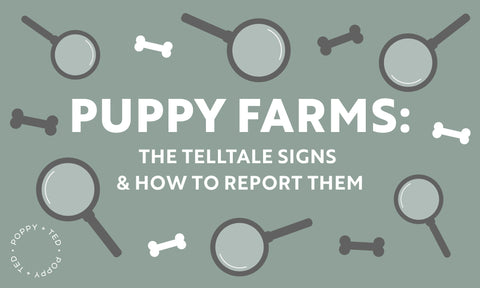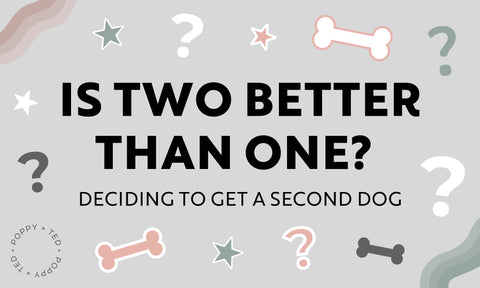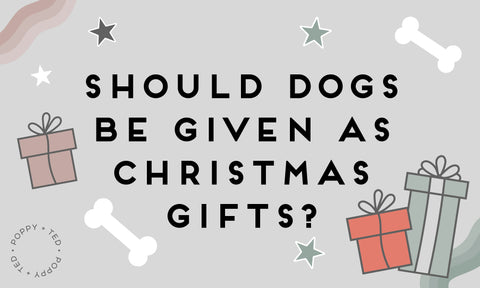
Shopping for a furry friend can be an exciting time. Many reputable puppy breeders out there provide nurtured young dogs that are healthy and happy, ready for you to take home and love. However, for every few good dog breeders, there is one bad one. Puppy farming is becoming a major issue, not just in the UK but across the world. Unlicensed dog breeders are lurking behind the disguise of a reputable breeder.
Knowing the key indicators to look out for can help you avoid illegal dog breeding and report it. The most effective way to tackle the issue is to stop it at the source. If you notice something that doesn’t seem right, reporting it to the RSPCA or PDSA can help to stop puppy farmers in their tracks. Here you can learn all the essential information about puppy farming, the telltale signs to look out for, and how to report it.
What Is Puppy Farming
Puppy farming is a cruel practice involving the continuous breeding of multiple dogs to make money. The dogs in these environments are subject to inhumane conditions putting their welfare and health at risk. The mothers are forced to breed at an unhealthy rate before they have recovered from their last pregnancy. Inbreeding is also common in puppy farming as a way to minimise costs. The puppies will be taken away from their mothers weeks before they are ready, which is traumatising for both mother and pup. Some puppy farms will even illegally bring puppies into the country from overseas to sell them.
The poor conditions and lack of ethical practice in puppy farms allow the breeders to make a maximum profit from their puppies. They invest little to no money into the parents' welfare or the litter, leaving them to live and sleep in their own mess. Puppies born on a puppy farm won’t be vaccinated, leaving them susceptible to various health issues and diseases, and they are at a higher risk of inheriting chronic genetic illnesses.
Puppy farms should be avoided at all costs. It can be tempting to feel that the puppies subject to such terrible conditions need saving, which is true. However, if you purchase a puppy from one of these breeders, then you are merely putting money in their pocket to be able to keep on breeding unethically. If you want to help effectively rescue dogs in trouble, you must report the issue as soon as possible.

Are Puppy Farms Illegal?
Licensed puppy farms are not considered illegal, but unlicensed ones are. This means they have not been approved by the local authority and are not regarded as reputable businesses. Third party puppy dealers are also illegal in England. This comes as a result of Lucy’s Law being passed on 6th April 2020.
What Is Lucy’s Law?
There has long been a need for new legislation to help tackle the rising incidents of the high volume sale of puppies and kittens. The brutal conditions of puppy farms have been known for many years, but it has not been until recently that this kind of low-welfare breeding has been tackled. Lucy was a Cavalier King Charles Spaniel who was subject to brutal puppy farming conditions and later rescued. Unfortunately, due to complications of her breeding and upbringing in that environment, Lucy died only 3 years later. The then Environment Secretary, Michael Gove, urged the passing of the new law, stating that Lucy’s Law would help to give animals “the best possible start in life”. The legislation prevents puppies and kittens younger than eight months old from being sold by third party sellers.
The Scale of the Issue
Unfortunately, Lucy’s Law is not yet in place in Scotland, Wales, or Northern Island, and many other countries worldwide are yet to combat the issue. Scotland has been conducting research into the Sourcing of Pet Dogs from Illegal Importation and Puppy Farms. However, this research hasn’t amounted to any legislation being passed. In 2012, the Pet Travel Scheme (PETS) was introduced, relaxing the requirements for importing companion animals into the UK commercially and noncommercially. This has been linked to a significant increase in the number of domestic animals being traded overseas. UK-bred puppies have also been traced back to large-scale international illegal breeding facilities. This process is being coined as ‘industrial-style’ puppy breeding and is becoming increasingly concerning.
What You Need to Acquire a License to Sell Animals
If someone wishes to sell animals as pets, there are some specific requirements they must meet to be able to do this. These are things that puppy farmers overlook. A fully up to date license is often a good starting point for knowing a seller’s authenticity. People selling from their homes are required to have a license to do so as well.
A seller’s local council is responsible for carrying out an inspection and any additional checks they feel are needed. They will ensure the seller has the appropriate records to hand, proving all veterinary treatments. They will also be required to show their license clearly in advertising and on their premises. A good seller can also provide advice and information about how to care for your pet.
To meet the license conditions, a seller must be able to prove that their animals are:
- Comfortable & in good accommodation
- Well fed & hydrated
- Exercised & socialised regularly
- Protected from pain, injury, disease & suffering
- In good experienced care
- Protected in the case of emergency

How to Spot a Puppy Farm
There are four key things to look out for in your search to find a dog. Checking the advertising, the seller, the location, and the puppies themselves will help you stay wary of potential puppy farmers. The PDSA has excellent resources to help you spot and report puppy farming. The more people know of this issue and how to deal with it, the better. If you or anyone you know is looking for a puppy to buy, they must be aware of the telltale signs of non-reputable breeders. It’s important to note that spot puppy farming isn’t always easy. Experienced third party sellers will go to extreme lengths to disguise their animals' real treatment and origins. You cannot guarantee that a puppy farm will be apparent, so knowing a good range of things to look out for can help you determine the answer.
Here are the key signs to help you identify a puppy farm:
- Multiple ads from the same seller - a puppy farm is likely to have a few simultaneous advertisements for different dog breeds.
- The dogs have passports - only a dog that has been imported will have a passport. Importing puppies is illegal in England.
- Generic/ vague wording - puppy farm ads will likely spare a lot of necessary detail about the litter.
- Are they already vaccinated? - A puppy shouldn’t be vaccinated before it is 8 weeks old. If an ad states that a litter is fully vaccinated, it is likely to be a puppy farm.
- They want to meet in public - the only reason a seller would ask to meet outside a dog’s home environment is if they have something to hide.
- Are you being asked questions? - A reputable breeder will want to ensure you can take care of one of their dogs, so they will try to gauge whether you are a suitable owner.
- Can they answer your questions? - If they can’t answer questions about the breed, temperament, and health of each puppy in the litter, then you need to be wary.
- The mum is nowhere to be seen - puppies should not be removed from their mother’s care before they are 8 weeks old. If you can’t see their mum, this is a massive issue.
- Is the mum legitimate? - A litter and their mum will appear closely attached and affectionate towards each other. Her teats should also clearly be visible.
- Cash payments - People selling puppies without a license are likely to only deal in cash.
- Does the address on the ad match up? - If the breeder’s ID address and the address the puppies are being kept at don’t match, this can indicate a cover up.
- Can you hear barking/ whining? - If you can hear many other dogs, but they are being kept out of sight, this is a major red flag.
- The dogs are unsettled - puppies that have been taken out of their home to be sold will seem unfamiliar with the fake ‘home’ environment they are in.
- Does the picture in the ad match? - Are the puppies you are looking at the same ones advertised? Take a copy of the ad with you so you can double check.
- Is the litter healthy? - The biggest sign of mistreatment is unhealthy puppies. If they seem poorly, injured, or distressed, you are likely dealing with a puppy farmer.
This may seem like a lot to look out for, but a puppy farm can disguise its real business in many ways. Ask as many questions as you can, and even take this list with you if you are going to view a potential puppy. An honest breeder will want nothing more than for their puppies to be in safe hands, so they will go to every length to ensure that you are fully informed about their first few weeks of life and their specific needs.
How to Report Suspected Puppy Farming
If you have suspicions about whether your dog came from a puppy farm or you think you have seen an advert that looks dodgy, then there are steps you can take to report it and help out our four legged friends. The global charity, FOUR PAWS, is on a mission to catch illegal puppy traders and animal abusers and bring them to justice. They have created the reporting system, Stop Puppy Traders to make the process straightforward so more puppy farms can be reported. The RSPCA also offers a service to combat illegal puppy farming in the UK. To fully investigate an alleged puppy farm, the RSPCA relies on a partnership with the police. This enables them to get a warrant to search entire properties instead of seeing only what the owner is willing to show.
Here are the steps you can take if you have spotted a potential case of puppy farming:
- Don’t purchase from that breeder - This is easier said than done. Seeing animals in distress can be upsetting, but the best thing for their welfare is not to put money into the breeder’s hands. This will only perpetuate their business.
- Report a suspicious ad - If you have noticed a series of ads from the same breeder selling different litters of puppies, or if it advertises the puppies as fully vaccinated, then report it.
- Inform the RSPCA of welfare issues - If you are worried about the welfare of a litter or the puppies’ mother, you MUST report this to the RSPCA. They are equipped to deal with the issue.
- Report any non-licensed sellers - To be a reputable business, a puppy breeder must be able to show you their license. If they can’t, this needs to be reported.
- If you witness animal cruelty, you MUST contact the police - If you see the puppies being abused or maltreated first-hand, you need to inform the police.

Has Social Media Made Puppy Farms More Accessible?
Dogs have risen in popularity over the past decade, which can be directly linked to the rise of social media influencers. Apps like Instagram have allowed people to share cute snaps of their four legged friends, which has led to many people seeking to copy the trends of their favourite influencers and their dogs. This trend has mainly involved the purchase of brachycephalic dog breeds, such as French bulldogs and pugs. The popularity of such specific dog breeds has meant that puppy farming has increased. Unfortunately, where there is a trend, money is to be made, which has meant these particular dog breeds are being bred illegally for profit.
Moreover, these particular brachycephalic breeds have already been a big topic in dog welfare conversations for many years. It has often been discussed whether or not the breeding of these specific dogs is humane or not. Due to the genetic structure of their nose, these dog breeds are at an increased risk of suffering from Brachycephalic Obstructive Airway Syndrome. Their shortened skulls mean their nasal cavities are compacted, restricting airflow, so they struggle to breathe. The UK pet charity Blue Cross has been urging the breeding of these dogs to be banned.
How to Avoid Puppy Farms When Getting Looking For a Dog
Finding the right dog can be a big task, but you must also consider where your dog is coming from. Now you can recognise all of the signs of an illegal puppy farm; you will be better equipped to avoid any potential risky purchases. Puppy farms will always try to capitalise as much as possible, especially around certain times of the year and with trendy dog breeds they know are high in demand.
To avoid buying your dog from a puppy farm, you SHOULD NOT:
- Buy from a litter where you can’t see the mother
- Shop for a dog around Christmas time
- Buy a puppy from a third party seller
- Purchase a puppy from anywhere other than the dog’s home
- Choose a dog breed just because it’s ‘on trend’
- Buy a dog without researching multiple breeders
Raising the Awareness of Puppy Farming
Puppy farming is worse than ever, and as long as people remain unaware of this cruel practice and its impact, it will only perpetuate the issue. To combat this, you can support your local pet charities and national organisations, such as the RSPCA or PDSA, so they have the resources they need to locate and convict illegal dog breeders. If a friend or family member is considering getting a dog, raising awareness with them can help them avoid buying from a non-licensed breeder.
Every dog deserves a safe and happy upbringing. They bring so much joy into our lives; they should never have to be subjected to the cruel conditions of puppy farms. If you are unsure how to navigate your journey to owning a dog, it is important to remember that there are alternative options and lots of information out there to help you. Adoption from a rescue centre is a great way to help a young or older dog to find a happy home. This way, you know you are getting your animal from safe hands, and they will be able to offer you lots of advice and information about their dogs’ behaviours and personalities.
You can learn more about the Adopt Don’t Shop movement in one of our recent blogs. If you have your heart set on a pedigree puppy, you can ensure you find an honest and reputable breeder by using The Kennel Club’s Assured Breeders Scheme. Taking care of our furry friends is important. Ensuring you report anything suspicious will help puppy farming become a thing of the past.



